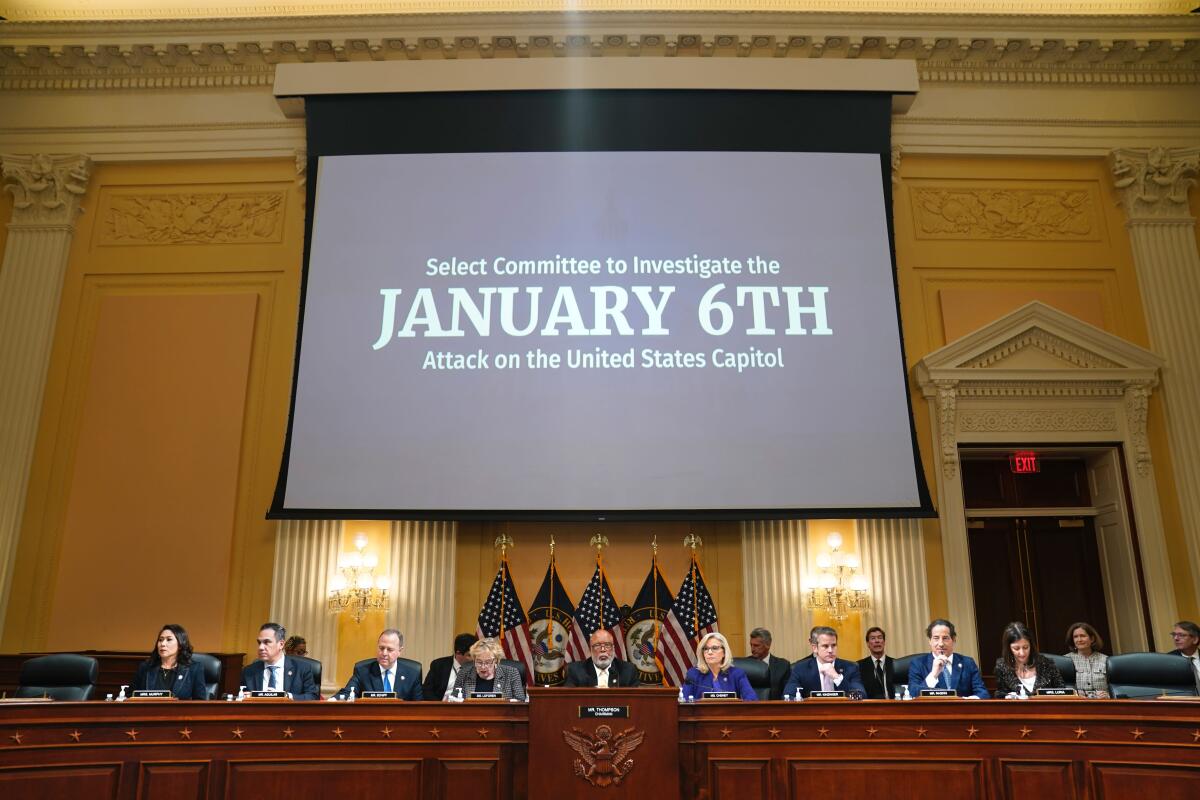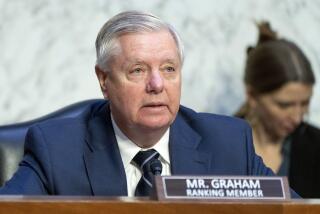Criminal referrals, witness tampering, Hicks testimony: Key takeaways from final Jan. 6 hearing

After hundreds of interviews, nine hearings and nearly 18 months of work, the House committee investigating the Jan. 6, 2021, attack on the Capitol held its final hearing Monday ahead of the release of a report detailing its findings.
“I believe, nearly two years later, this is still a time of reflection and reckoning,” said Chairman Rep. Bennie Thompson (D-Miss.). “If we are to survive as a nation of laws and democracy, this can never happen again.”
Thompson said that while the report — which the committee voted to adopt on Monday — will make a number of policy recommendations to prevent another Jan. 6, ensuring future attacks don’t happen will require “accountability” through the criminal justice system. The committee voted to recommend criminal charges against former President Trump, lawyer John Eastman and others.
“We have every confidence that the work of this committee will help provide a road map to justice,” he said.
After opening statements from Thompson and Vice Chair Rep. Liz Cheney (R-Wyo.), the committee played a short video laying out the key findings from past hearings: Trump knew that he lost the 2020 election even as he tried to overturn the results by pressuring state officials, election workers, the Department of Justice and then-Vice President Mike Pence; Trump urged the mob to go to the Capitol; and he waited 187 minutes to release a video asking his supporters to leave.
Here are the key points the committee made during its final hearing.
Multiple criminal referrals
Rep. Jamie Raskin (D-Md.) said that the panel’s subcommittee tasked with looking into criminal referrals would recommend criminal charges against Trump and Eastman.
The subcommittee proposed recommending the Department of Justice charge Trump, Eastman and others with obstruction of an official proceeding and conspiracy to defraud the United States. Raskin said the committee is also recommending that the Justice Department charge Trump with conspiracy to make a false statement and efforts to “incite” or “assist” in an insurrection.
The Jan. 6 committee’s referral of former President Trump to the Justice Department for criminal charges is unprecedented in American history.
“We propose to the committee advancing referrals where the gravity of the specific offense, the severity of its actual harm and the centrality of the offender to the overall design of the unlawful scheme to overthrow the election compel us to speak,” Raskin said. “Ours is not a system of justice where the foot soldiers go to jail and the masterminds and ringleaders get a free pass.”
New concerns over witness tampering
Rep. Zoe Lofgren (D-San Jose) said that Trump used money raised from supporters to hire attorneys and “provide or offer employment to witnesses.”
Lofgren said one witness was told by a lawyer that she could tell the committee she couldn’t recall events that she did, in fact, remember. According to Lofgren, the witness said that lawyer declined to state who was paying for his representation. Another witness said she was approached with a lucrative potential employment opportunity ahead of her testimony by entities tied to Trump, but the job didn’t pan out.
“These offers were withdrawn or didn’t materialize as reports of the content of her testimony circulated,” Lofgren said. “The witness believed this was an effort to affect her testimony and we are concerned that these efforts may have been a strategy to prevent the committee from learning the truth.”
New testimony from Hope Hicks
Several witnesses, including former Atty. Gen. William Barr, have testified that they told Trump there was no evidence of widespread election fraud that would have changed the outcome of the election. Monday’s hearing featured video testimony from a new witness, former White House communications director Hope Hicks.
“I was becoming increasingly concerned that we were damaging his legacy,” Hicks told the committee of the former president.
In response, Hicks said Trump replied with “something along the lines of ‘Nobody will care about my legacy if I lose … the only thing that matters is winning.’”
More to Read
Get the L.A. Times Politics newsletter
Deeply reported insights into legislation, politics and policy from Sacramento, Washington and beyond. In your inbox three times per week.
You may occasionally receive promotional content from the Los Angeles Times.












